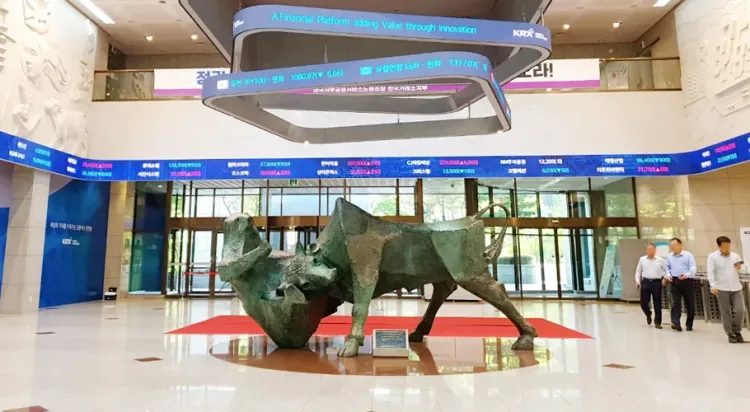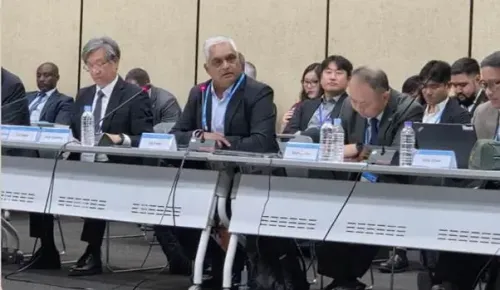Is South Korea Really Introducing a 'One-Strike-Out' System Against Illegal Stock Trading?

Synopsis
Key Takeaways
- Implementation of 'one-strike-out' system.
- Joint inspection team for real-time monitoring.
- Fines can reach double the unjust profits.
- Streamlined regulations for market surveillance.
- Tightened listing maintenance requirements.
Seoul, July 9 (NationPress) South Korean authorities are set to launch a 'one-strike-out' policy aimed at combating illegal stock trading. This initiative will also see the formation of a joint inspection team that will facilitate real-time monitoring and enable rapid investigations into suspicious activities, officials announced on Wednesday.
These measures are part of an extensive plan unveiled jointly by the Financial Services Commission (FSC), the Financial Supervisory Service (FSS), and the Korea Exchange (KRX) to address illegal stock transactions, thereby enhancing the appeal of the domestic stock market to international investors.
According to the FSS, “We will enforce a 'one-strike-out' policy against unfair trading practices, such as stock price manipulation, by effectively recovering illegal profits and permanently removing perpetrators from the capital market,” as reported by Yonhap news agency.
As part of this new enforcement framework, the financial authorities will swiftly initiate payment suspension procedures when they identify accounts linked to illegal activities during investigations. This is aimed at preventing suspects from transferring illicit gains.
Offenders engaged in illegal practices will face fines that can reach up to double the amount of their unjust profits.
These decisive actions follow President Lee Jae Myung's call for reforms in the market.
Since his electoral victory last month, the benchmark Korea Composite Stock Price Index (KOSPI) has surged, fueled by optimism for political stability and pro-market policies.
On June 20, the index exceeded the 3,000-point threshold for the first time in over three years and has since stabilized around the 3,100 level, closing at 3,114.95 on Tuesday.
The new president has committed to ushering in a 'KOSPI 5,000 era.'
To achieve this goal, the three agencies will establish a joint task force at the KRX to bolster the Market Surveillance Committee's initial response capabilities.
The current fragmentation of responsibilities for addressing unfair trading across multiple institutions has led to delays in effective enforcement. The new task force is anticipated to respond more quickly to cases involving large shareholders, corporate executives, false disclosures, and other dubious trading activities, according to officials.
The government also plans to modify relevant regulations to allow authorities to conduct market surveillance based on individuals rather than accounts.
This shift from an account-based system is expected to enhance detection of connections between accounts held by the same individual, thereby reducing the number of subjects under analysis by around 39%, which significantly enhances efficiency as per reports from officials.
Additionally, authorities have decided to tighten listing maintenance requirements and streamline the delisting process for companies that underperform.
Last week, the National Assembly approved a revision to the Commercial Act, which aims to broaden corporate directors' fiduciary duties to shareholders, enhancing protections for minority shareholders.









